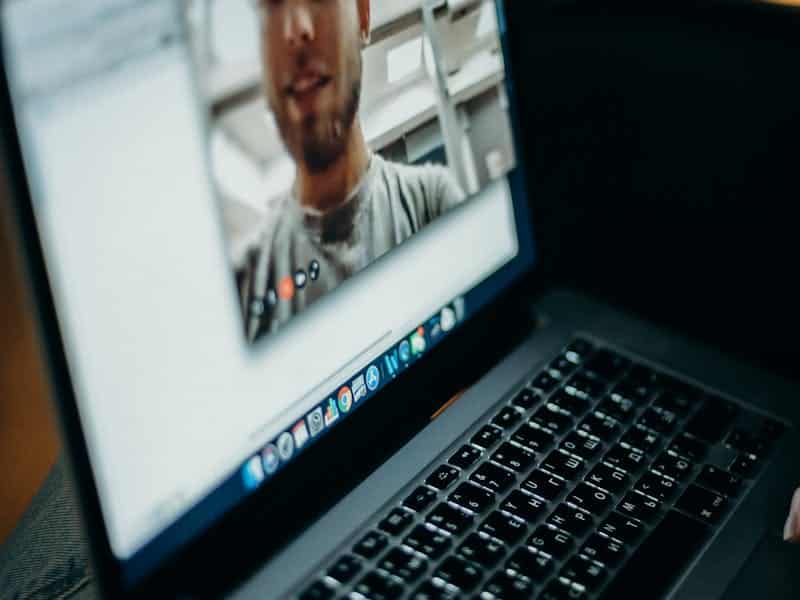
In our current era, where smartphones and CCTV are ubiquitous daily, recording devices are now easily accessible. This raises the question of whether recording someone without their consent is legal. In terms of family law proceedings, this question arises frequently, as it does in many households, workplaces and schools across the country.
This issue significantly affects Australia’s privacy laws, including in Queensland. While general principles apply nationwide, each state may have specific nuances regarding the legality of recording conversations and interactions. Laws apply to in-person discussions, telephone calls and video and audio calls made on communications apps.
A listening device can be a mobile phone audio or video recording device, PC PC-based recorder or any other digital recording device.
There are three distinct elements to this question, which we’ll look at in this article.
1. Is it legal to secretly record conversations or take photos or videos of someone without them knowing?
2. Is a covertly recorded conversation or video taken in a private place without consent legally admissible in court proceedings?
3. Is it ethical to use a recording device of any kind or be privy to a private conversation, uninvited, without the knowledge or consent of another?
Please keep in mind that laws change, and each state has guidelines for what is considered lawfully recorded, what is considered a criminal offence, and which areas are considered legally grey. As a Queensland-based firm, we’ll focus on Queensland and national laws, as the two are not always aligned. Let’s get started.
So, can you record someone without permission?
Before delving into the legality of recording others or conversations, it’s essential to grasp the concept of consent and the framework of privacy laws in Australia. Consent is pivotal in determining the legality of recording someone, particularly when individuals reasonably expect privacy.
In Australia, including Queensland, recording someone without their consent raises legal and ethical concerns. Laws surrounding this issue vary, but recording private conversations without consent is generally considered illegal. This applies to situations where individuals have a reasonable expectation of privacy, such as in personal or confidential settings. However, there may be exceptions in certain circumstances or for specific lawful interests, such as law enforcement activities.
Australian privacy laws aim to balance protecting individuals’ privacy rights and allowing legitimate recording for lawful purposes, such as by law enforcement agencies or journalism.
Laws exist in Australia to protect your privacy in many circumstances. Recording calls, listening to someone else’s private conversation without consent, or taking photos or videos of a private act in your home or elsewhere is generally not legally permissible.

The general rule? Consent is key.
To start with, under the Telecommunications Act of 1979 (Cth), audio recordings of phone calls are generally illegal without the consent of all parties. There can be many reasons that someone may record a call, though, for instance, if it’s a work brief, it may be handy to record a conversation for later reference.
In this case, though, most people would ask, and it’s doubtful it will ever be shared otherwise or used in court proceedings.
However, it’s crucial to note that the definition of a “private conversation” and the requirements for consent may vary across different states and territories. In Queensland, private conversations are guided by state legislation. Federal laws additionally regulate telephone calls.
Legalities of recording a phone call – Australian State & Territory variations
While consent rules apply in most Australian jurisdictions, there are variations and exceptions to federal law that individuals should be aware of, mainly when recording conversations without consent. Let’s explore how these laws differ across states and territories, explicitly focusing on Queensland.
Queensland
In Queensland, the Listening Devices Act 1984 governs the use of listening devices, including recording private conversations. Under Queensland law, recording a private conversation without all parties’ consent is generally illegal.
However, there are exceptions to this rule, such as when one party consents to the recording or when the recording is conducted for specific lawful purposes, including law enforcement or surveillance devices operated by authorised entities.
New South Wales
Similarly to Queensland, New South Wales (NSW) adheres to the one-party consent rule for recording private conversations. However, it’s essential to note that there are stringent penalties for unlawfully recording conversations in NSW, including hefty fines and potential imprisonment.
Victoria
Victoria follows the one-party consent rule, allowing individuals to record private conversations as long as one party to the conversation consents. However, there are restrictions on using recorded conversations as evidence in legal proceedings, particularly in cases where the recording was obtained unlawfully or breached privacy laws.
Other States and Territories
The one-party consent rule generally applies to recording private conversations in states and territories such as South Australia, Western Australia, Tasmania, the Australian Capital Territory, and the Northern Territory. However, individuals should familiarise themselves with the specific legislation applicable to private recordings in their jurisdiction, as there may be variations and exceptions to the general rule.
What are the potential legal consequences of recording a private conversation without consent?
Individuals unlawfully record private conversations without consent may face severe legal consequences, including civil and criminal penalties. These penalties can vary depending on the circumstances of the recording and the applicable state or territory laws. It’s essential to exercise caution and ensure compliance with relevant privacy legislation to avoid legal ramifications.
Is it legal for a third party to listen to a face-to-face conversation or telephone call over a phone or PC connection with one party if the other party is unaware?
Listening to a face-to-face conversation over a phone or PC connection without the knowledge of one party may fall under the category of secretly recording conversations. This could be illegal in Australia without all parties’ consent, depending on the jurisdiction and circumstances. However, specific legal advice should be sought to understand the implications.
Is a private conversation the same as a confidential conversation?
While there may be overlap, a private conversation typically refers to one held in a non-public setting, where individuals expect privacy. On the other hand, a confidential discussion often involves sensitive information shared under an explicit understanding of confidentiality. While both may deserve legal protection, the distinction lies in the information exchanged and the expectations of privacy or confidentiality.
A private conversation does not need to be communicated to make it a private conversation; it’s expected. There is no requirement to tell someone that a conversation is private (unless you want to) in terms of privacy laws; it’s legally accepted – and common sense – that if someone believes they are having a personal chat with someone else, that any sharing or use a telecommunications system to broadcast or record the conversation would be a privacy breach.

What is a covert recording?
A covert recording, also known as a secret recording, refers to recording conversations or activities without the knowledge or consent of all parties involved. This may include using hidden recording devices or discreetly capturing audio or video content. Covert recordings raise legal and ethical questions regarding privacy rights and consent.
What are lawful interests?
Lawful interests refer to legitimate reasons or justifications for specific actions or activities recognised under the law. In the context of recording conversations, lawful interests may include activities such as law enforcement operations, gathering evidence for legal proceedings, or the lawful interest in protecting one’s legal rights. However, ensuring such interests align with applicable laws and regulations is essential.
What about video calls being screen-recorded or recorded with another device? Does everyone need to give permission?
Recording video calls without consent raises legal considerations similar to recording audio conversations – and evidence of direct or implied consent would be necessary. In Australia, including Queensland, laws generally require consent from all parties involved in the conversation. Failure to obtain such consent may result in legal consequences, although exceptions may exist for specific lawful interests or activities.
This is why many video meeting apps have a sound and written warning appear when a recording is going to begin – which should only happen when parties have consented to this occurring.
What if I have a legitimate reason for secretly recording a conversation?
Secretly recording conversations without consent is generally considered unlawful in Australia. However, there are times when there is a greater associated purpose beyond having an accurate record of a conversation. For instance, if you are witnessing a serious dispute that may result in someone being harmed or overhear a discussion about an indecent assault, it may be considered lawful, or in the public interest, to make a recording. However, this is not legally advised without seeking clear legal advice relative to your own situation.
The recording you make may be to provide evidence, and your recording may be inadmissible. However, if you had an ethical and legitimate purpose for doing so, it’s unlikely you will face prosecution, and even if it cannot be submitted as evidence, it could still be valuable for an investigation.
Actions that violate individuals’ privacy rights could lead to legal proceedings if discovered. Understanding the legal implications and seeking specialist legal advice if considering recording conversations secretly is essential.
In cases involving serious crimes, such as serious narcotics offences or instances of imminent threat or harm, a police officer recording conversations without consent may be justified under certain circumstances. However, the legality of using such recordings as evidence will depend on various factors, including the jurisdiction and the specific laws governing the admissibility of evidence. Seeking legal advice promptly is crucial in such situations.
What if I need to make a recording for my own legal protection?
When individuals believe recording conversations is necessary for their legal protection or the public interest, proceeding cautiously and seeking specialist legal advice is essential. This may not be possible if it’s a one-off incident, so it’s best to seek legal advice immediately after you have made a recording of this nature.
While there may be valid reasons to record conversations, such as documenting agreements or preventing disputes, individuals must ensure compliance with relevant privacy laws and obtain consent when required. Consulting with legal experts can help determine the best course of action while safeguarding one’s legal rights.

What about secret recordings to prove family violence or domestic violence is occurring?
While the law typically prohibits secret recordings without consent, exceptions may exist in cases involving severe matters such as serious violence, such as family or domestic violence. In some jurisdictions, including Queensland, recordings made to prevent harm or obtain evidence of criminal behaviour may be admissible in court. However, consulting with legal experts is crucial to ensure compliance with relevant laws and procedures.
What about parents using children’s devices to record another parent when a parenting matter is going to court or in dispute?
Using children’s devices to record conversations between parents can raise complex legal and ethical issues, especially in family law proceedings. This is also true for listening to private conversations with children (when there is no risk of harm to the child) or recording conversations with the other parent without their consent. To avoid issues, let the other parent know if you are present (for instance, your child is on a speakerphone call at home).
While such actions may seem justified in contentious situations, they could violate privacy laws and affect legal outcomes. Seeking specific legal advice is advisable to navigate these sensitive matters appropriately. If you have genuine concerns for your child’s wellbeing, it’s wise to seek appropriate help rather than taking matters into your own hands and risking breaching privacy laws.
On the other side of this matter, a co-parent who constantly interferes with their child’s relationship with the other parent breaches privacy or uses devices to track the child and other parent’s whereabouts has more frequently been reported in cases of family violence, as a type of coercive control that is undertaken remotely.
While laws in this area are still developing, it’s wise to contemplate your actions. Moreover, if no harm occurs, you are denying your child privacy and placing them in a difficult position, which could damage their relationship with the other parent. If harm occurs and the other parent finds out, you could put them in harm by taking these actions. It’s best to initiate legal proceedings or seek help to manage the situation.
What if someone is covertly recording conversations, how can I get them to stop?
If someone is covertly recording conversations without consent or getting someone else to do this, it may well fall under stalking laws. It absolutely could constitute a breach of privacy laws and raise legal concerns. Individuals who discover or suspect covert recordings should seek legal advice to understand their rights and potential courses of action. Remedies such as cease and desist orders or legal action may be pursued depending on the circumstances.
While the one-party consent rule generally applies across most jurisdictions, there are variations and exceptions that individuals should be aware of, particularly in states like Queensland. Understanding the legal framework surrounding recording private conversations is crucial to avoiding legal issues and safeguarding individuals’ privacy rights. As technology evolves, lawmakers must adapt privacy laws to address emerging challenges in the digital age while striking a balance between privacy protection and legitimate recording activities.
If you have further questions about privacy, using a recording device for a family law matter, or have been recorded or photographed without your consent, please speak to a legal professional immediately.



